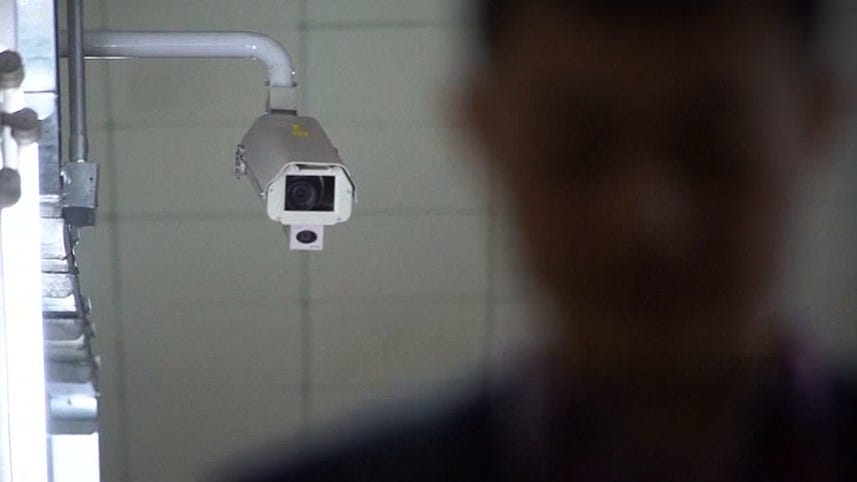
The facial recognition technology industry is booming.
In China, it's one of the tools being used to track a person's public behavior and determine their social credit score.
High scorers get perks like discounted energy bills.
Low scorers may face travel restrictions, or slow internet speeds.
[MUSIC]
In the US nearly any place that has security cameras, concert venues, public parks, lobbies, and shopping malls may be using facial recognition technology.
It can help find missing children.
[MUSIC]
Identify and catch criminals and even speed up travel.
[MUSIC]
Passengers flying out of Atlanta's Hartsfield International Terminal F are able to check their bags, clear security, and board their international flight without needing to show identification.
[MUSIC]
So far, 17 US airports have installed facial recognition kiosks to screen passengers boarding international flights.
It's all part of the Customs and Border Protection Agency's biometric exit program.
So biometric exit was approved by Congress.
After 9/11, and it was a program that CBP was ordered to create to track the entry and exit of foreign nationals from the United States.
CBP says that they are not keeping US citizen photographs Their office say that, US citizens can opt out at this city any time, [UNKNOWN] goals is to have biometric exit system used for nearly every international flight by 2021.
[MUSIC]
Facial recognition has been used for years in retail industry to cut down on theft.
The latest software allows stores to flag and share the faces of known shoplifters.
So if I'm marked as an intruder in Store A, for example, if they're partnered with Store B, Store C and so on.
That would mean that I'm essentially banned from every single one of them without even entering any of these other stores.
This technology doesn't really rely on Having new hardware you can just download the software for your video management system and they can just plop it right onto the system that most stores already have in place.
With wall cameras in more places Putting faces into databases there are privacy concerns.
Just physically being in an airport is not consent to having your face being stored in a database.
Walking in a store is not consent to allowing your face to be stored in a database .That is not what consent.
means.
Privacy rights groups also question the accuracy of some of the current facial recognition software.
They point to several studies that found it is more likely to misidentify people of color and women.
Keeping peace as it's aware of the possibililty that there could be Biased or one group of people getting false positives at a higher rate than other people.
And they say that their algorithm is very accurate and is better than the algorithms that have been shown to be discriminatory in the past.
[MUSIC]
There is proposed Federal Legislation that would limit the use of facial recognition technology for commercial purposes.
There are no laws on the government's usage.
Facial recognition is going to be everywhere.
We've seen it at concert.
So we've seen it in stadiums, we've seen it at airports, anywhere you're trying to go.
It's not that you don't have anything to hide, it's that you won't have anywhere to hide when this is everywhere.
There's so many issues for your own privacy.
[MUSIC]